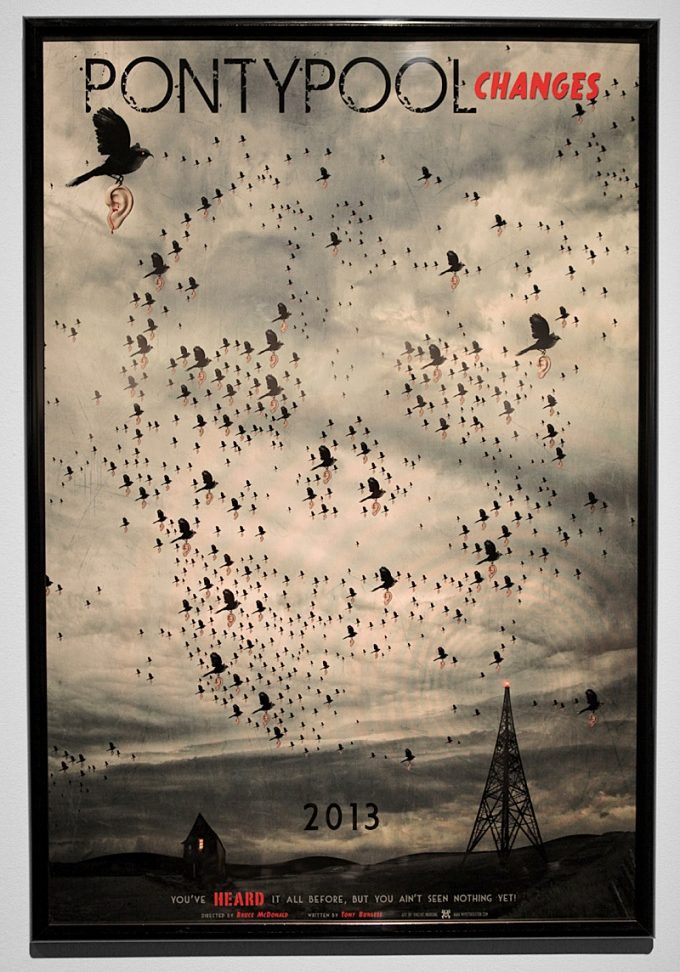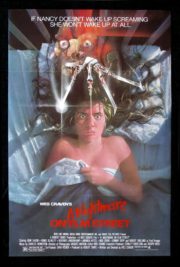“Kill is kiss”: The Infectious Dread of “Pontypool Changes”
In the claustrophobic small-town setting of “Pontypool Changes,” director Bruce McDonald crafts a chilling narrative that claws at the mind more than the flesh. Released in 2013, this film takes the zombie genre and morphs it into something unrecognizably terrifying. The plot centers around Grant Mazzy, a radio DJ stationed in the quiet town of Pontypool, Ontario, who discovers that a bizarre virus is transforming the townspeople into a horde of murderous creatures. But these aren’t your typical flesh-eaters; here, language is the carrier of infection. As Mazzy and his crew barricade themselves in the radio studio, they must navigate a landscape where words become fatal and silence is survival.
Whispers in the Dark: Crafting Tension
Without relying on grandiose set pieces or copious amounts of gore, “Pontypool Changes” engulfs viewers in a shroud of atmospheric horror. McDonald’s brilliance lies in his ability to use the unseen, allowing viewers’ imaginations to conjure scenarios more harrowing than anything on screen. The pacing is meticulously deliberate, crawling beneath your skin with the steady cadence of a ticking clock foreshadowing doom.
The intimacy of confined spaces in conjunction with off-kilter camera angles constructs an unrelenting tension. McDonald’s nuanced direction shines in scenes where dim lighting and the radio’s static hum combine to form an unsettling ambiance. The haunting visuals of snowy landscapes provide a stark contrast to the growing chaos within, highlighting the film’s oppressive isolation.
Sounds of Silence: Audio’s Crucial Role
In a movie where words are lethal, the manipulation of audio isn’t just ingenious—it’s essential. The discordant score and eerie sound effects act as the film’s pulse, with moments of dread accentuated by a disquieting silence or the sudden intrusion of frantic calls on the airwaves. The use of sound crafts a visceral experience, manipulating viewers’ perceptions and adding layers of complexity to the horror.
Renowned for its innovative take on the spread of infection, the film places auditory terror center stage. In doing so, McDonald pushes viewers to ponder the implications of communication and the very words they utter, driving home the horror with chilling effectiveness.
The Terror of Language: A Dissection of Performances and Themes
With its mechanics deeply rooted in psychological horror, “Pontypool Changes” leans heavily on the performances of its cast to deliver its creeping malaise. Stephen McHattie, as Mazzy, shoulders the narrative with an air of rugged desperation, magnifying the sense of dread with every bewildered line delivered. His portrayal of a man grappling with an unseen enemy is riveting, grounding the story with authenticity. The small ensemble cast complements him effectively, facilitating a symphony of fear played out in tight quarters.
The unique conception of horror explored in this film positions it amid philosophical and psychological subgenres rather than conventional gore-fests. Its exploration of the contagion-via-language concept not only innovates within the zombie trope but also offers a grave meditation on the power of communication in shaping reality. The societal undercurrents—fear of the other, the breakdown of understanding, and the paranoia that ensues from misinformation—are especially poignant.
For those yearning for a cerebral affair that creeps rather than startles outright, “Pontypool Changes” is a triumph of mood and concept. It stands out as refreshingly original in a genre often mired by clichés and repetition, giving horror aficionados a uniquely mind-bending experience to savor.
Final Transmission: A Cult Classic in the Making?
In sum, “Pontypool Changes” is a masterclass in psychological horror, wedging itself into viewers’ psyches with its understated but relentless approach. The movie’s strengths lie in its atmospheric tension, sound design, strong performances, and the harrowing exploration of themes that resonate long after the credits roll.
While not suited for those seeking jump scares or visceral horror, this film will undoubtedly resonate with viewers fascinated by the unconventional and cerebral. Admirers of works like “The Babadook” or “It Follows” will find familiar threads of terror spun in novel ways. With a modest budget but an immeasurable impact, “Pontypool Changes” converses with genre classics while forging a path all its own.
Critical evaluation reveals this movie to be a gem that challenges the conventions of horror cinema and provides a hauntingly memorable experience. Viewer discretion is advised for those affected by intense psychological themes and occasional scenes of graphic violence. Ultimately, “Pontypool Changes” offers a unique blend of horror, suspense, and intellectual stimulation, proving that sometimes the most profound fear comes not from the monsters we can see, but from the words we speak.




